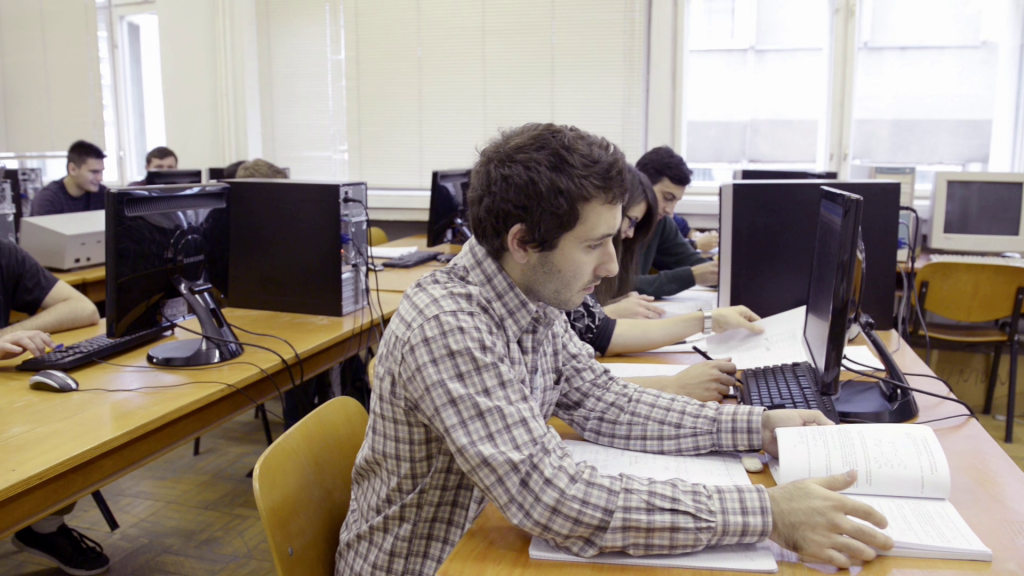
Systems and Control (in English)
The Systems and Control postgraduate master programme is for graduates of Bachelor studies that have basic knowledge of automatic control and wish to deepen research directions aimed at:
- modeling, simulation, identification, analysis and design of automatic control systems using advanced methods;
- design, implementation, testing, operation and maintenance of digital and analog equipment for advanced automatic control;
- software applications for implementing control algorithms using programming tools, artificial intelligence techniques and advanced technologies.
Year 1
Year 2
| 1st semester | 2nd semester |
|---|---|
| Project Management | Research for Master's Thesis |
| Fault Detection and Diagnosis | |
| Visual Servoing Control Systems | |
| Modeling and Predictive Control |
Curriculum for master studies in Systems and Control:
Mode of study – full-time
Learning outcomes (as in the diploma supplement)
Professional outcomes
- Operation with advanced concepts from systems theory and automatic control, computer science, artificial intelligence and information and communication technology.
- Use of computer aided advanced methods, of modeling, simulation, identification, analysis and design of the automatic control systems.
- Design, implementation, testing, use and maintenance of the systems with general use and dedicated equipment, numerical and analogical, of the advanced structures within the field of automatic control.
- Development of complex software application for the implementation of some algorithms and control structures using programming environments, artificial intelligence techniques and advanced technologies (microcontrollers based systems, signal processors, programmable automata).
Transversal outcomes
- Application in the context of compliance with the legislation, of intellectual property rights (including technological transfer), of the methodology for product certification, of the principles, norms and values of the code of professional ethics within their own strategies.
- Application of relationship techniques and effective group work: development of the empathic capacities of interpersonal communication and of assuming roles/leading positions within a specialized team.
- Creating opportunities for continuous training and the effective use of learning resources and techniques for their own development.